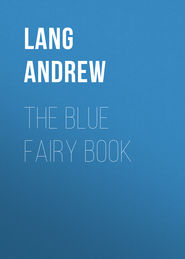По всем вопросам обращайтесь на: info@litportal.ru
(©) 2003-2024.
✖
John Knox and the Reformation
Настройки чтения
Размер шрифта
Высота строк
Поля
Bain, i. 618, 619.
251
Knox, ii. 330.
252
Ibid., ii. 330, 331.
253
Cf. Baird, The Rise of the Huguenots, ii. 21 et seq.
254
Bain, i. 627. Randolph to Cecil, May 29.
255
Cf. Froude, vi. 547-565.
256
“Book of Discipline,” Knox, ii. 228.
257
M‘Crie, 187.
258
Knox, ii. 330-335.
259
Bain, i. 673.
260
Randolph mentions the joy of the Court over some Guisian successes against the Huguenots, then up in arms, while Mary was on her expedition against Huntly, in October 1562. On December 30 he says that there is little dancing, less because of Knox’s sermons than on account of bad news from France. Bain, i. 658, 674.
Dr. Hay Fleming dates the wicked dance in December 1562, but of course that date was not the moment when “persecution was begun again in France,” nor would Mary be skipping in December for joy over letters of the previous March. Mary Queen of Scots, 275.
261
Knox, vi. 140, 141.
262
Keith, iii. 50, 51.
263
Bain, i. 630.
264
Lesley, ii. 468.
265
Knox, vi. 193.
266
Knox, ii. 337-345.
267
Hay Fleming, Mary Queen of Scots, 301.
268
Knox, ii. 347.
269
Act Parl. Scot., ii. 572.
270
Bain, i. 665.
271
Bain, i. 668.
272
Chalmers, in his Life of Queen Mary, vol. i. 78-96 (1818), takes the view of the Huntly affair which we adopt, but, observing the quietly obtained title of Moray under the Privy Seal (January 30, 1561-62) and the publicly assumed title of Mar, granted on February 7, 1561-62, Chalmers (mistaking Huntly for a loyal man) denounces the treachery of Lord James and the “credulity” of the Queen. To myself it appears that brother and sister were equally deep in the scheme for exalting Moray and destroying Huntly.
273
Cf. Pollen, Papal Negotiations, 163, 164.
274
Knox, ii. 346.
251
Knox, ii. 330.
252
Ibid., ii. 330, 331.
253
Cf. Baird, The Rise of the Huguenots, ii. 21 et seq.
254
Bain, i. 627. Randolph to Cecil, May 29.
255
Cf. Froude, vi. 547-565.
256
“Book of Discipline,” Knox, ii. 228.
257
M‘Crie, 187.
258
Knox, ii. 330-335.
259
Bain, i. 673.
260
Randolph mentions the joy of the Court over some Guisian successes against the Huguenots, then up in arms, while Mary was on her expedition against Huntly, in October 1562. On December 30 he says that there is little dancing, less because of Knox’s sermons than on account of bad news from France. Bain, i. 658, 674.
Dr. Hay Fleming dates the wicked dance in December 1562, but of course that date was not the moment when “persecution was begun again in France,” nor would Mary be skipping in December for joy over letters of the previous March. Mary Queen of Scots, 275.
261
Knox, vi. 140, 141.
262
Keith, iii. 50, 51.
263
Bain, i. 630.
264
Lesley, ii. 468.
265
Knox, vi. 193.
266
Knox, ii. 337-345.
267
Hay Fleming, Mary Queen of Scots, 301.
268
Knox, ii. 347.
269
Act Parl. Scot., ii. 572.
270
Bain, i. 665.
271
Bain, i. 668.
272
Chalmers, in his Life of Queen Mary, vol. i. 78-96 (1818), takes the view of the Huntly affair which we adopt, but, observing the quietly obtained title of Moray under the Privy Seal (January 30, 1561-62) and the publicly assumed title of Mar, granted on February 7, 1561-62, Chalmers (mistaking Huntly for a loyal man) denounces the treachery of Lord James and the “credulity” of the Queen. To myself it appears that brother and sister were equally deep in the scheme for exalting Moray and destroying Huntly.
273
Cf. Pollen, Papal Negotiations, 163, 164.
274
Knox, ii. 346.











